The Tragic True Story of Peg Entwistle, the Actress Who Jumped to Her Death From the Hollywood Sign
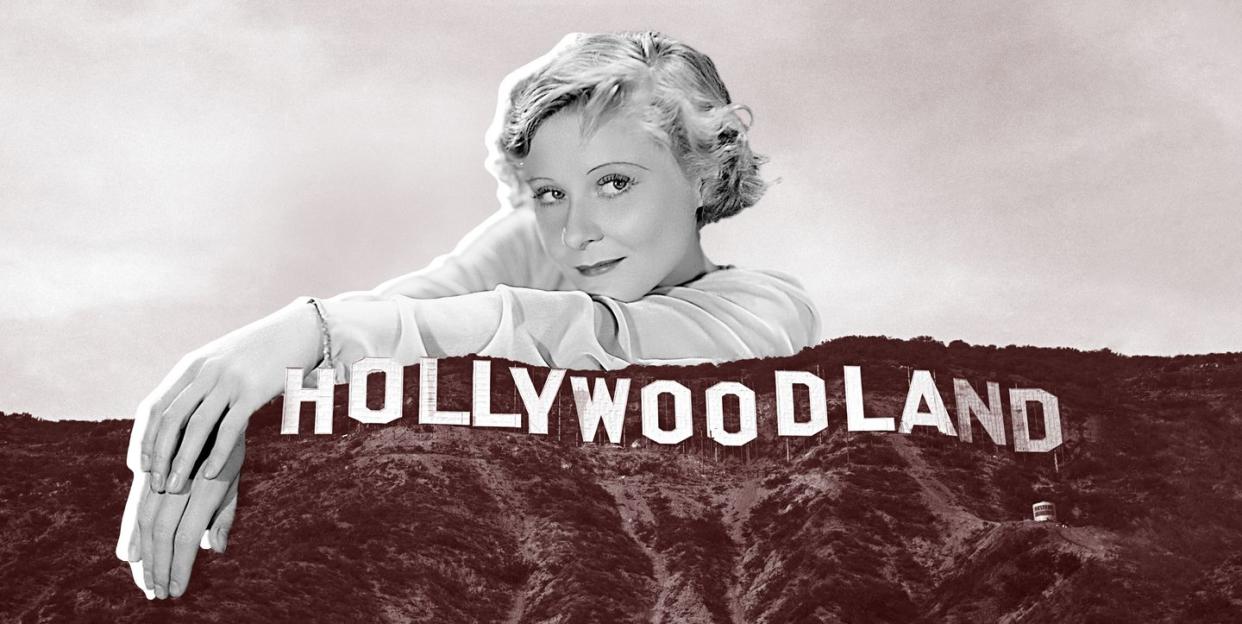
Rising 45 feet over the hills of Los Angeles, the nine white letters spelling "HOLLYWOOD" form one of the world's most recognizable cultural landmarks. For the 10 million visitors who crowd into Griffith Park each year to catch a glimpse, the sign is a must-see tourist attraction. But for aspiring stars hoping to make it big, it's something much more: a reminder of the city's storied past and a hopeful glance toward the possibility of their own glittering future.
But there's a dark side to the Hollywood sign as well. On the night of September 16, 1932, a young actress named Peg Entwistle left her uncle’s home, walked to the nearby Hollywood sign, climbed a maintenance ladder to the top of the letter “H,” and jumped to her death. She was 24 years old.
Related Video: The History of Hollywood Censorship
The tragic story is a major plot point in the new Ryan Murphy-produced Netflix series Hollywood, which offers a revisionist take on Tinseltown's history, showing aspiring actors and filmmakers trying to make it big in the post-World War II film era. In the series, Entwistle's suicide becomes the inspiration for a screenplay written by a Hollywood outsider who can identify with her struggle to break into show business.
Many who watch the series will wonder: who was Peg Entwistle, and why did her life and career came to such an abrupt, dark end?
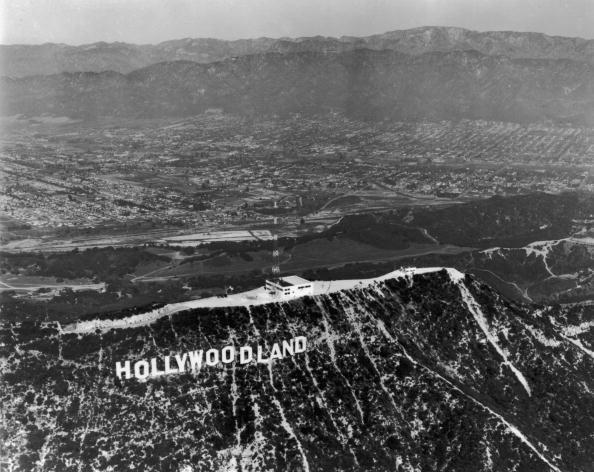
The Hollywood sign, which originally read "HOLLYWOODLAND," was erected in 1923 as a real-estate advertisement for the growing area. In those early days, the entire sign was studded with 4,000 light bulbs and would flash in three segments: "HOLLY," "WOOD," and "LAND"—though the latter segment was ultimately removed in 1949.
By 1932, the year of Entwistle's death, the silent film era had ended and "talkies" ruled the day. The studio system was in its prime, dominated by the Big Five studios: 20th Century Fox, RKO Pictures, Paramount Pictures, Warner Bros., and Metro-Goldwyn-Mayer. And Shanghai Express—starring one of the greatest actresses of the era, Marlene Dietrich—was the year's highest-grossing film.
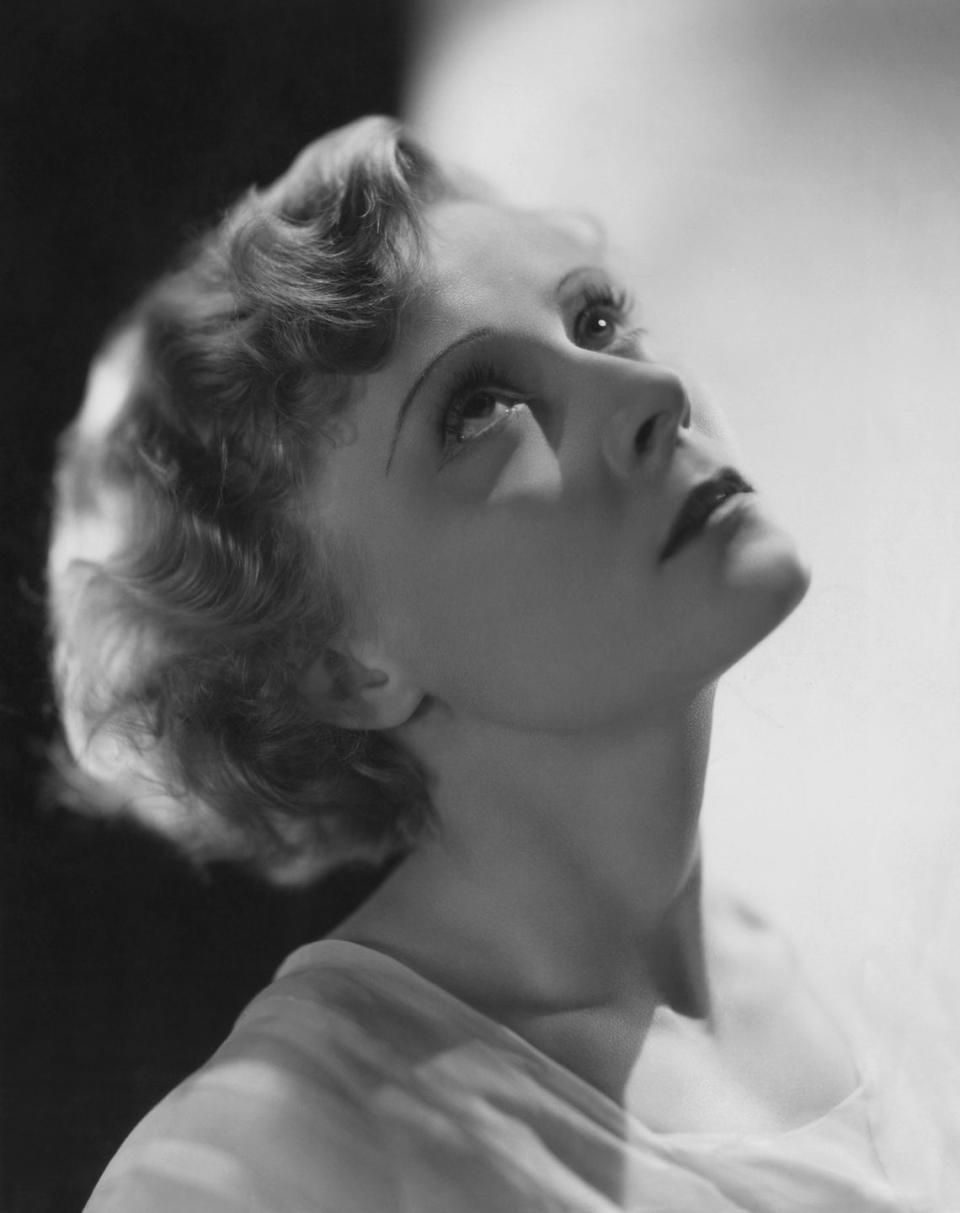
Like so many others, Entwistle came to Hollywood looking to become a star like Dietrich. She was born Millicent Lilian Entwistle on February 5, 1908 in Wales, England. It's unclear what happened to her mother—according to the only complete biography of Entwistle, written by James Zeruk Jr., her parents divorced when she was two, though it has often falsely been claimed that her mother died.
In 1912, Entwistle emigrated to America with her father, Robert, and they eventually settled in New York. Robert, a theater stage manager, soon remarried and had two sons.
Sadly, tragedy seemed to follow the family: Robert's second wife died in 1921, and just one year later, Robert died after being struck by a car on Park Avenue and East 72nd Street. Fourteen-year old Peg and her two younger half-brothers were taken in by their uncle Harold.
Despite the many personal tragedies of her childhood, Entwistle began pursuing her stage career at 17. In 1925, she appeared in several Broadway productions. (A young Bette Davis reportedly said she wanted to be just like Entwistle after seeing her act in The Wild Duck.) And a year later, Entwistle was accepted into the prestigious New York Theatre Guild.
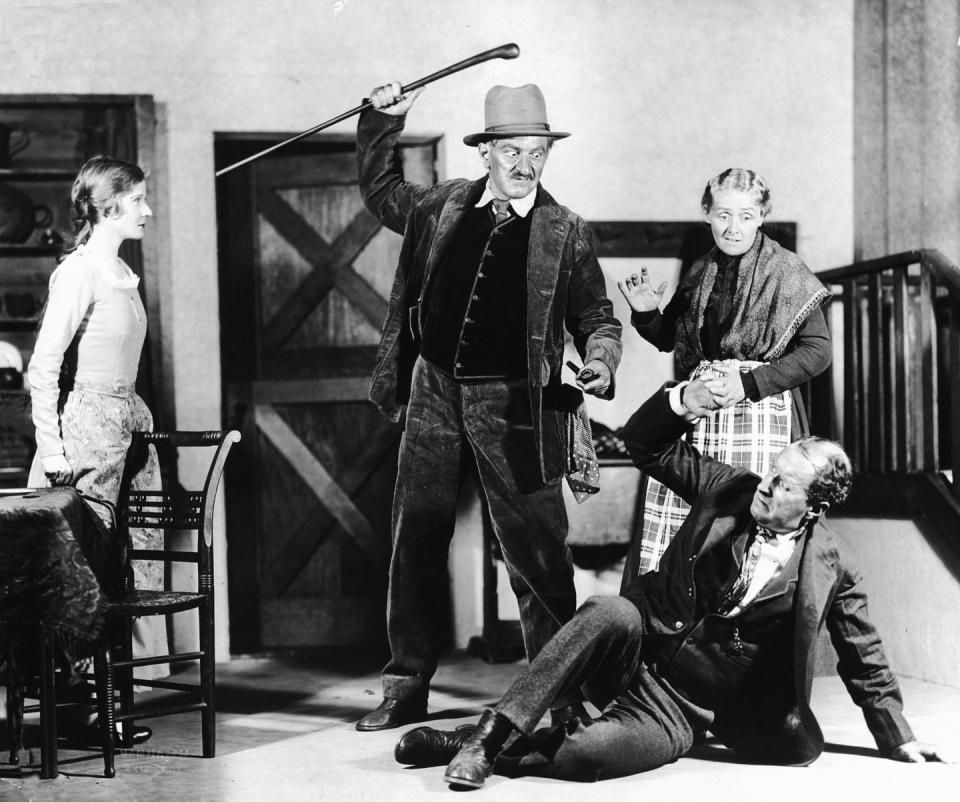
Entwistle married a fellow actor, Robert Lee Keith, in 1927. Their New York Times wedding announcement lists a number of her theater credits, including a small part in Hamlet with Walter Hampden, The Man from Toronto, The Home Towners, and a role in Tommy at the Eltinge Theater. Sadly, the marriage didn't last long (Keith had a previous wife and son, unbeknownst to Entwistle), and the couple divorced in 1929.
By 1931, the Depression had hit hard, and plays closed almost as soon as they opened. Entwistle abandoned New York and headed west to Los Angeles (where she moved in with another uncle, Charles), hoping to pursue a film career instead. But with so many beauties flocking to town during Hollywood's Golden Age, all of them seeking to be the next big thing, Entwistle struggled to stand out and find roles.
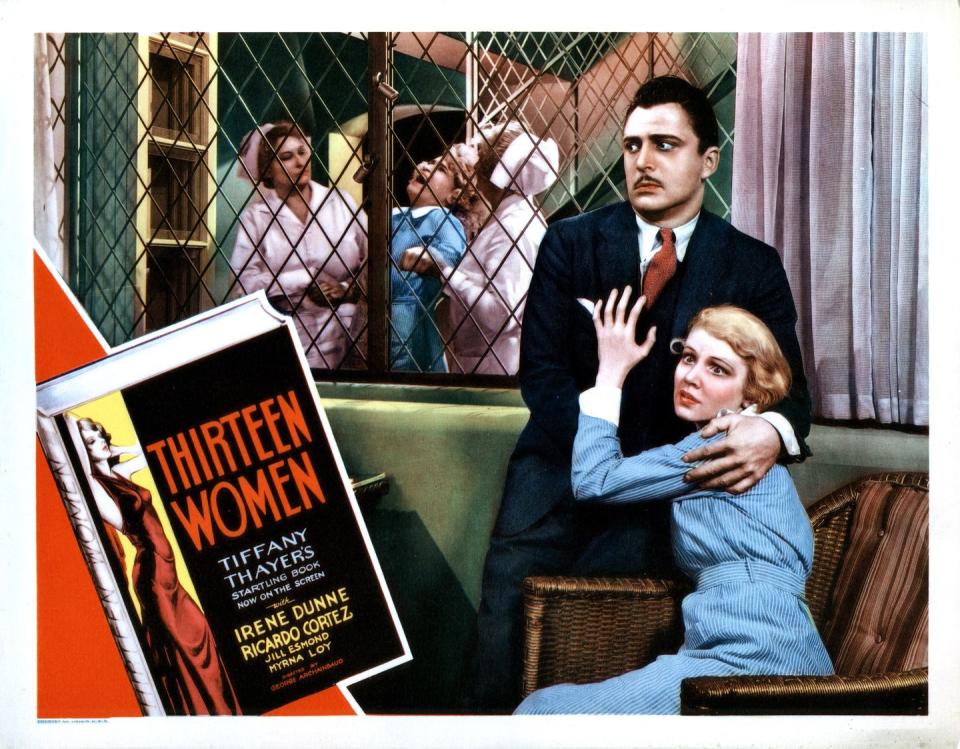
By the summer of 1932, Entwistle had just completed her first big film part in the thriller Thirteen Women. But much of her performance was cut from the final movie, and the film—which debuted only one month after her death—would go on to be poorly received. (The convoluted plot about sorority sisters who are manipulated into killing themselves, or each other, also involved lesbianism, which clashed with the cultural mores of the time.) Entwistle was let go from her RKO contact, with no money and no backup plan.
And so on the night of September 16, 1932, she left her uncle’s bungalow on Beachwood Drive, telling him she was going to meet some friends at a nearby drug store, hiked into the canyon and climbed up to the sign.
According to local news reports (of which there were many, from California to Maine), the next day, a female hiker found a shoe, jacket, and purse scattered on the mountain below the sign. Inside the purse was a suicide note which read: "I am afraid, I am a coward. I am sorry for everything. If I had done this a long time ago, it would have saved a lot of pain. P.E" The unidentified hiker looked about 100 feet down the mountain, saw a body, and called the police. Entwistle's uncle later identified her remains, and her cause of death was ruled a suicide.
In the 88 years since her death, Peg Entwistle has become a Hollywood legend. There is a rumor that a letter arrived the day after she died, offering the lead role in a play... about a woman driven to suicide. Others say her ghost has haunted the famous landmark ever since, leaving behind the scent of gardenias, said to be her favorite perfume.
Though Entwistle's story had a tragic ending, it will get a new light in Ryan Murphy's Netflix series Hollywood, serving as inspiration—and maybe a cautionary tale—for the characters looking to make their own dreams come true.
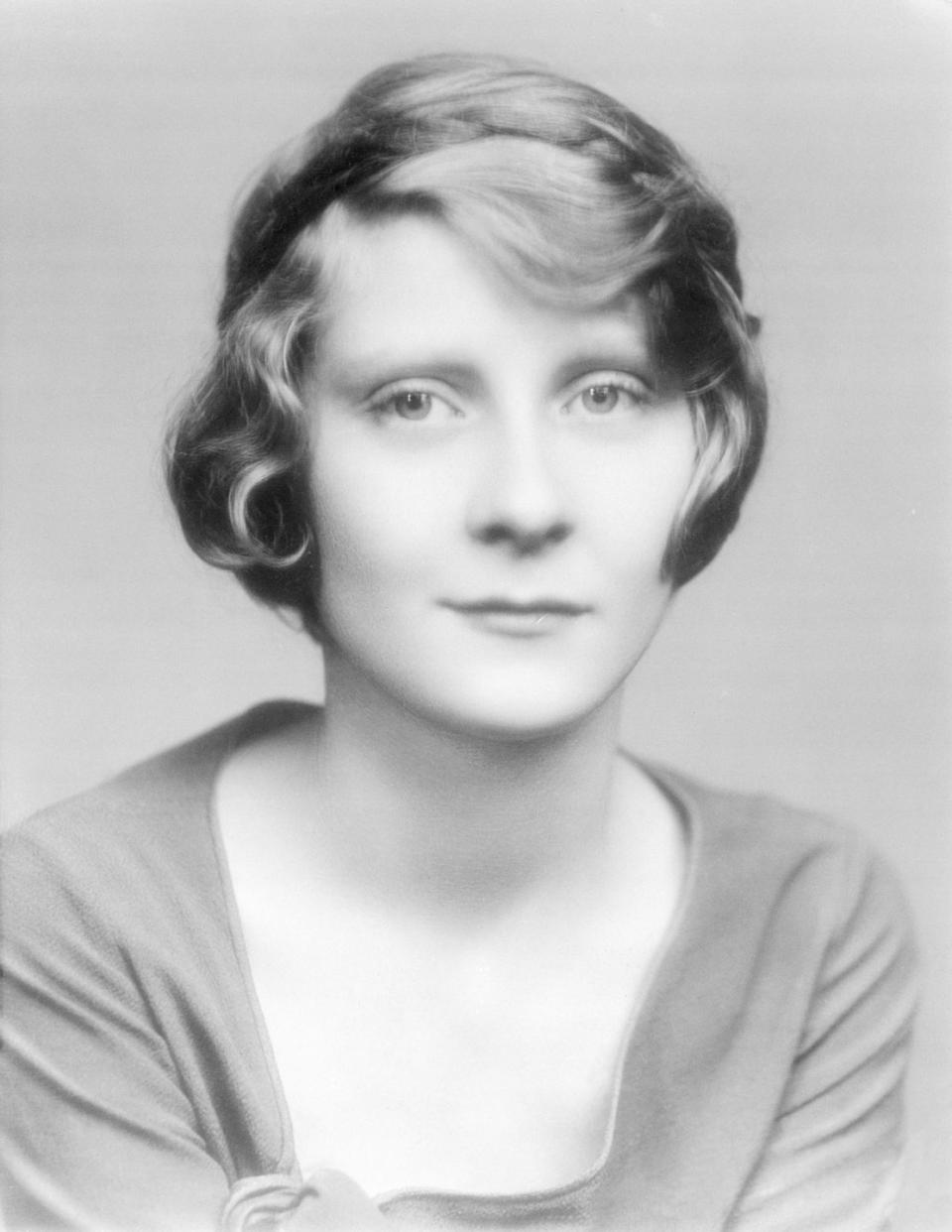
You Might Also Like

